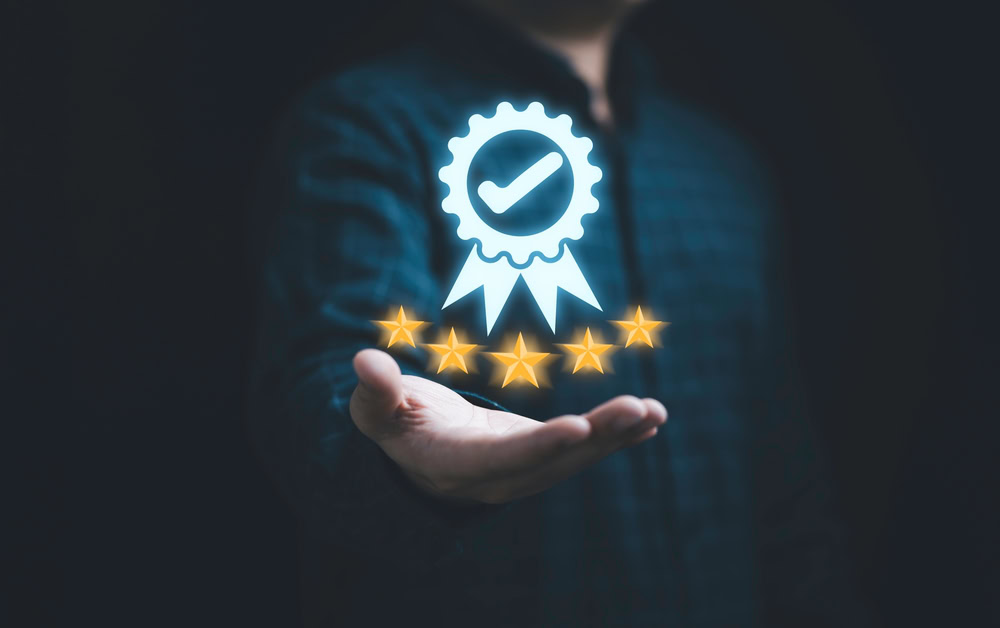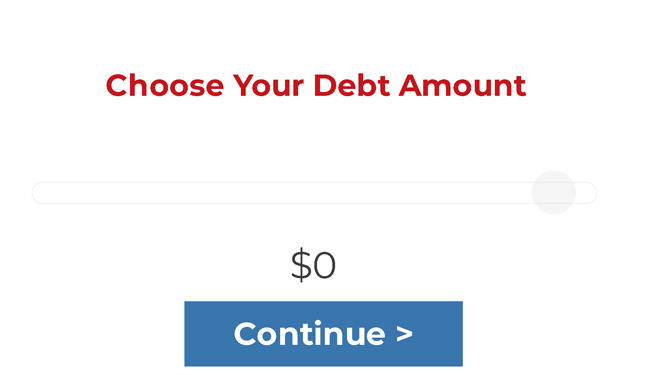Debt consolidation is a financial tactic that merges various debts into a single, manageable loan. This is usually done by obtaining a new loan that covers the entire sum of all outstanding debts.
The objective of debt consolidation is to streamline the repayment process, possibly reduce interest rates, leading to lower monthly payments and a quicker route to becoming debt-free.
This strategy can be especially beneficial for individuals dealing with high-interest credit card debt or numerous loans that may be challenging to monitor. Nevertheless, it’s crucial to thoroughly examine the terms and fees linked to any consolidation loan before deciding.
Best Debt Consolidation Companies: May 2023
As of July 2023, numerous leading debt consolidation firms provide a range of debt relief options for consumers. These companies present debt consolidation loans, debt settlement programs, and credit counseling services to assist individuals in handling their debt and enhancing their financial status. Here are the top debt consolidation offerings of May 2023:
#1 ClearOne Advantage
ClearOne Advantage is a debt settlement company that helps consumers who are struggling with unsecured debts, such as credit card debt, medical bills, and personal loans. The company was founded in 2008 and is based in Baltimore, Maryland.
ClearOne Advantage has a high success rate in negotiating settlements with creditors. The company charges fees based on the amount of debt enrolled in the program, and fees are only charged when a settlement is reached. ClearOne Advantage also offers a money-back guarantee for customers who are not satisfied with their services.
#2: Pacific Debt Relief
Pacific Debt Relief is a debt consolidation company that has been helping people reduce their unsecured debts since 2002. They have an A+ rating with the Better Business Bureau, and they have helped thousands of people get out of debt.
For anyone approaching this phone call uncertain about whether to proceed with debt relief, we would like to reiterate that Pacific Debt Inc. staff are top-notch. Spend some time, and you might find yourself saving big on unsecured debt repayments.
#3 AmOne
AmOne is a personal loan company that can help you get the money you need for debt consolidation, home improvement projects, medical expenses, and more.
They work with trusted lenders to get you the best rate possible. AmOne is the best place to get a personal loan. The process is quick and easy, and you’re not obligated to accept the loan offer if it’s not right for you. Plus, there are no fees or hidden costs.
Debt Consolidation: What You Need To Know

Debt consolidation is a financial strategy that allows individuals to combine multiple outstanding debts into a single, more manageable payment. This is typically achieved by taking out a new loan or line of credit with a lower interest rate than the existing debts, and using the funds to pay off the original debts in full.
This can simplify the repayment process and potentially save the borrower money in interest charges over time. Debt consolidation can be a useful tool for those struggling with high levels of debt, but it’s important to carefully consider the terms and fees associated with any consolidation loan before taking on new debt.
- Debt consolidation can simplify repayment and save money on interest charges
- It’s a useful tool for those with high levels of debt
- It’s important to carefully consider terms and fees before taking on new debt
Options for Debt Consolidation
Various debt consolidation options are available to choose from. Some choices include obtaining a secured loan, like a home equity loan, while others might involve collaborating with a debt consolidation firm to negotiate reduced interest rates and monthly payments. Here are some forms of debt consolidation:
- Personal Loan Consolidation: Is a financial strategy that allows individuals to combine multiple loans into a single loan with a lower interest rate. This can help borrowers simplify their debt management and save money on interest payments in the long term.
- Balance Transfer Credit Cards: These are a type of credit card that allows you to transfer your outstanding balances from one or more credit cards to the new one. The primary benefit of balance transfer credit cards is that they typically offer a low or 0% introductory APR for a fixed period, making it easier to pay off your debt without accumulating additional interest charges.
- Home Equity Loans: A type of loan that allows homeowners to borrow against the equity in their property. Equity is the difference between the value of the property and the outstanding mortgage balance. Homeowners can use the loan for various purposes, such as home improvements, debt consolidation, or major purchases. The interest rates for home equity loans are typically lower than other types of loans because the loan is secured by the property.
- Debt Management Plans: Program that helps individuals struggling with debt to manage their finances and pay off their debts. These plans are typically offered by credit counseling agencies and involve negotiating with creditors to reduce interest rates and monthly payments. The debt management plan consolidates all of the individual’s debts into one payment, which is then distributed to each creditor.
- Debt Settlement: Process in which a debtor negotiates with their creditors to settle their outstanding debt for a reduced amount. This process is typically used by individuals who are struggling to make their monthly payments and are facing financial hardship. Debt settlement companies act as intermediaries between the debtor and their creditors and work to negotiate a settlement that is agreeable to both parties.
Debt Consolidation Loans vs Debt Settlement
Debt consolidation loan and debt settlement are two choices accessible for individuals grappling with debt. Debt consolidation entails obtaining a new loan to pay off all existing debts, leaving just one loan to be repaid each month. This approach is advantageous because it streamlines the debt repayment process and could lead to reduced interest rates and monthly payments.
Conversely, debt settlement involves negotiating with creditors to resolve debts for less than the outstanding amount. While this option may be more cost-effective, it can negatively affect credit scores and might necessitate a lump sum payment. Ultimately, the ideal choice depends on personal circumstances, such as the debt amount and type, credit rating, and financial objectives.
FAQs

Will A Debt Consolidation Loan Hurt My Credit Score?
Debt consolidation loans can have both positive and negative effects on your credit score. On one hand, consolidating your debt can potentially improve your credit score by reducing your overall debt-to-credit ratio and making it easier for you to manage your payments.
On the other hand, taking out a new loan or opening a new credit account can temporarily lower your credit score due to the hard inquiry that is required. Additionally, if you do not make your payments on time or miss payments altogether, your credit score could be negatively impacted. Ultimately, the effect of debt consolidation on your credit score will depend on your individual financial situation and how you manage your payments.
Is it possible to resolve credit card debt with debt consolidation loans?
Yes, it is possible to resolve credit card debt with debt consolidation loans. Debt consolidation loans allow individuals to combine all their debts into one loan, usually at a lower interest rate than what they were previously paying. This can make it easier to pay off the debt since they only have to make one payment each month and can save money on interest charges.
However, it is important to note that debt consolidation loans are not a quick fix and require financial discipline to make regular loan payments and avoid falling back into debt. It is also important to research and compare different loan options to find the best one for your individual situation.
What are Unsecured Personal Loans?
Unsecured personal loans are a type of loan that does not require collateral, such as a car or house, to secure the loan. This means that the borrower does not need to offer any assets as security in case they are unable to repay the loan. Instead, the lender will assess the borrower’s creditworthiness and ability to repay the loan based on their credit score, income, and other financial factors. Unsecured personal loans usually have higher interest rates than secured loans, as they are considered riskier for lenders. These loans are typically used for a variety of purposes, including debt consolidation, home improvements, or unexpected expenses.
What is the minimum credit score needed?
The minimum credit score needed for debt consolidation varies depending on the lender and the type of loan. Generally, a credit score of 580 or higher is required for a personal loan or a debt consolidation loan. However, some lenders may require a higher score, such as 620 or 640. It is important to note that even if you meet the minimum credit score requirement, other factors such as your debt-to-income ratio and credit history will also be considered when determining your eligibility for a debt consolidation loan. It is recommended to shop around and compare offers from multiple lenders to find the best option for your specific financial situation.
Glossary
- Debt consolidation: A financial solution that involves combining multiple debts into a single, large debt with a lower interest rate and a longer repayment period.
- Interest rate: The percentage of the principal amount of a loan that is charged by the lender as a fee for borrowing.
- Principal amount: The original amount of money borrowed or owed.
- Repayment period: The amount of time given to pay back a loan or debt.
- Credit score: A numerical representation of a person’s creditworthiness based on their credit history and financial behavior.
- Credit counseling: A service that helps consumers manage their debts and finances, often offering advice on debt consolidation and budgeting.
- Secured debt: Debt that is backed by collateral, such as a mortgage or car loan.
- Unsecured debt: Debt that is not backed by collateral, such as credit card debt or medical bills.
- Debt-to-income ratio: The ratio of a person’s debt payments to their income, used to determine their ability to repay debts.
- Credit utilization: The percentage of a person’s available credit that they are using, used to determine their credit score.
- Balance transfer: The process of moving debt from one credit card to another with a lower interest rate.
- Loan consolidation: A type of debt consolidation that involves taking out a new loan to pay off multiple debts.
- Debt settlement: A negotiation process in which a debtor and creditor agree to a reduced payment amount to settle a debt.
- Collection agency: A company that specializes in collecting debts on behalf of creditors.
- Bankruptcy: A legal process in which a person declares that they are unable to pay their debts and seeks to have them discharged or restructured.
- Garnishment: A legal process in which a creditor can seize a portion of a debtor’s wages or assets to pay off a debt.
- Co-signer: A person who agrees to take responsibility for a loan or debt if the primary borrower cannot pay.
- Refinancing: The process of replacing an existing loan with a new one with better terms, often used for debt consolidation.
- Interest rate reduction: A reduction in the interest rate charged on a loan or debt, often achieved through debt consolidation or negotiation with creditors.
- Debt management plan: A structured repayment plan for multiple debts, often managed by a credit counseling agency.






